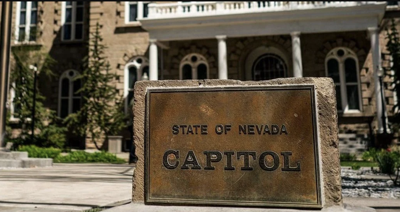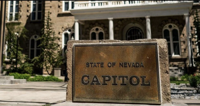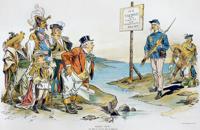
The Nevada State Capitol Building.
Local communities need trusted, sustainable and impactful local news.
Hyperlocal media outlets, which have been on the decline over the past two decades, provide community members with news that directly impacts their livelihoods and with the information needed to engage their neighbors, hold public officials accountable and effect change.
This is why Nevada legislators must ensure the creation of the Rural and Community Media Program.
Senate Bill 367 would require the Nevada Department of Administration to create said program and utilize rural or community media outlets for public outreach, public engagement and marketing and advertising, prioritizing these media to better address issues impacting historically marginalized and underrepresented communities.
Introduced by Sen. Edgar Flores (D-Las Vegas) and sponsored by five assembly members, the bill made its way onto the Senate floor with strong bipartisan support in March and continues to move through the Senate and the Assembly before potentially making it to Governor Joe Lombardo’s desk.
The Nevada Press Association issued a written statement in favor of SB 367 and praised the bill’s sponsors for “recognizing the vital role that rural and community media play in our state’s ecosystem.” The association went on to “urge” support for the bill, “as it represents a significant step toward more equitable and comprehensive public engagement across Nevada.”
Legislation like SB 367 falls in line with CALÓ News’ mission to help create a thriving media landscape for all communities, where essential community news plays a crucial role in increasing civic participation and diminishing public polarization.
In mid-April, the Senate Committee of Government Affairs passed the bill without comment, turning it over to the Senate floor for a second reading. Should it be approved by the Senate, the legislation would go through the same motions and readings on the Assembly floor.
During the presentation of the bill before the Committee of Government Affairs in late March, Flores brought committee members back to the start of the COVID-19 pandemic, signaling the difficulty experienced by people of color when it came to access to information, saying “one of the reasons for that was because information did not travel the same and as quickly as we needed it.”
“We needed to get the information out, vulnerable communities were unfortunately left out,” Flores went on. “And we saw this in the rural communities, but in general, communities that speak different languages.”
The issue of access to reliable and useful information has long been an issue; the coronavirus pandemic simply made it visible.
To paraphrase Flores, how we put information out matters, whether that be resources, public service announcements or day-to-day news. Simply publishing a news article digitally on a news site or physically on a newspaper — in any language — does not guarantee that the information will reach the people who need it most, even if both media are free.
This isn’t a liberal issue. Access to information is a basic human right, and Nevada would be doing its residents a disservice should its legislators fail to pass a bill of this nature.
The bill is supported by a diverse coalition of local and regional news media organizations including the Nevada Press Association, the Latino Media Collaborative and many others. The approval of this legislative proposal would ensure the survival and magnification of rural, hyperlocal and other newsrooms, strengthening their operations and reach within their coverage areas.
The CALÓ News editorial board publishes separately from the newsroom.











(0) comments
Welcome to the discussion.
Log In
Keep it Clean. Please avoid obscene, vulgar, lewd, racist or sexually-oriented language.
PLEASE TURN OFF YOUR CAPS LOCK.
Don't Threaten. Threats of harming another person will not be tolerated.
Be Truthful. Don't knowingly lie about anyone or anything.
Be Nice. No racism, sexism or any sort of -ism that is degrading to another person.
Be Proactive. Use the 'Report' link on each comment to let us know of abusive posts.
Share with Us. We'd love to hear eyewitness accounts, the history behind an article.